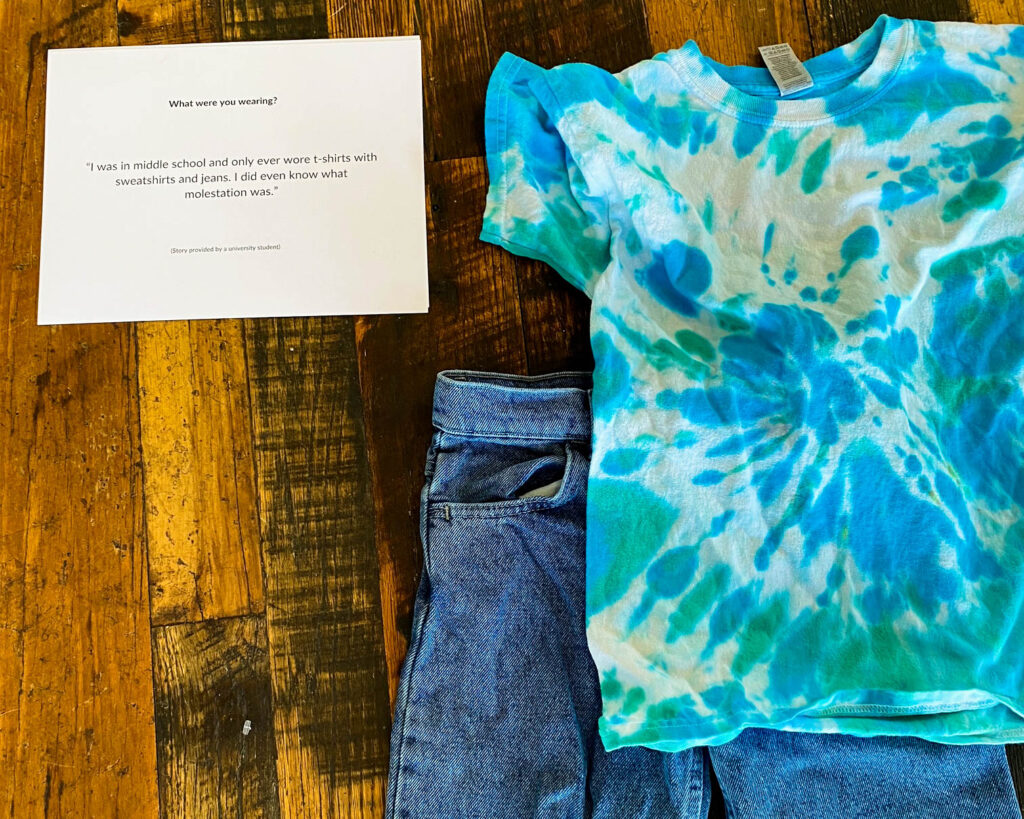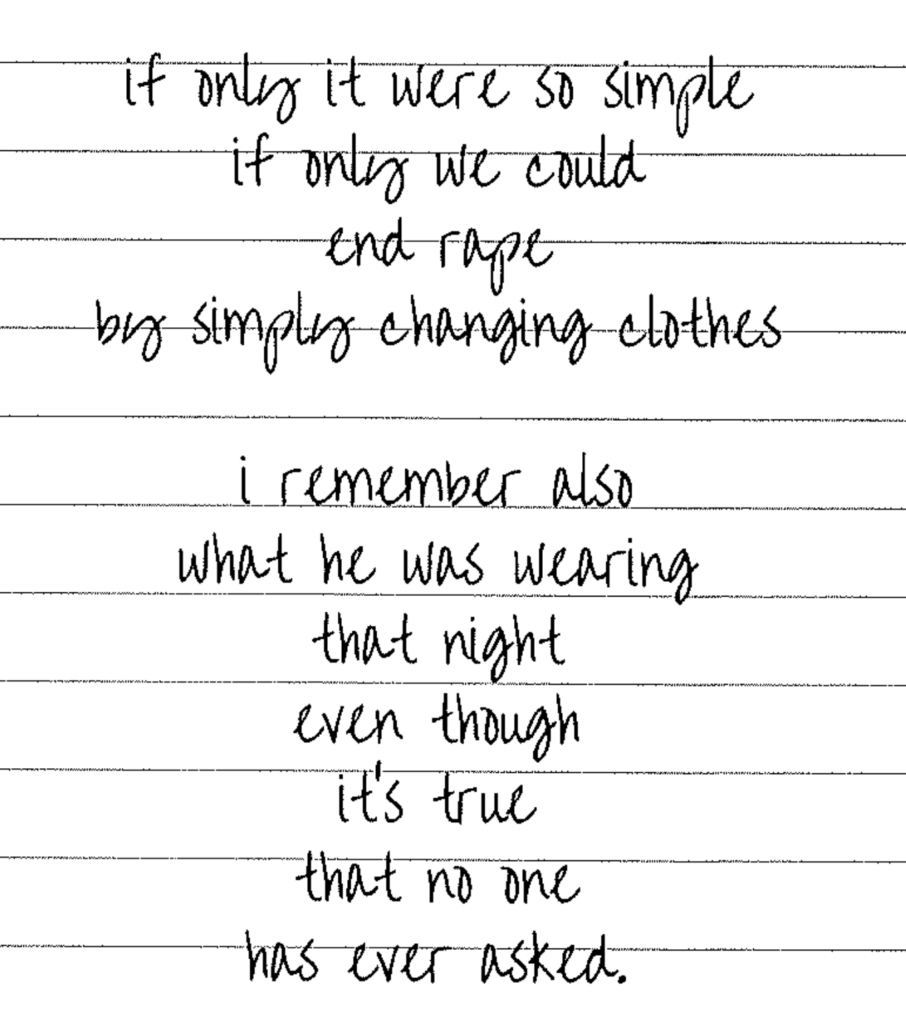
“What were you wearing?”
That’s a question sexual assault survivors often hear — from friends, family, law enforcement. It’s also the name of a traveling exhibit of outfits that men, women and children were wearing when they were assaulted that’s designed to combat victim-blaming.
The two-day event makes its Tennessee debut this week, running Wednesday and Thursday at Fat Bottom Brewery. It’s free and organized by Nashville’s Sexual Assault Center.
There are a lot of baggy t-shirts in the exhibit, along with hoodies, jeans — and kids’ pajamas. They all highlight that what someone was wearing when they were assaulted, or how they looked, does not matter.
“Rape is not about sex and pleasure,” said Lorraine McGuire, SAC’s Vice President of Community Relations & Development. “It’s about power.”
She says understanding that will help stop victim-blaming, not just from society, but within victims themselves. McGuire says SAC therapists and advocates hear victims asking all the time, “’What could I have done differently?’ ‘What did I do to make this happen?’”
The outfits come mostly from anonymous donors, and each one is accompanied by a short description. For instance: “A bohemian skirt and top. Nothing fancy, I’d worn that outfit a dozen times before. I always thought I was safe because I didn’t wear ‘those kinds of clothes.’ I guess my rapist didn’t get the memo.”
McGuire says it was important that they include men’s clothing “because there’s such a stigma and around men disclosing sexual assault. And we really are trying to break that down, because the men also need help [and] therapy.”
Some items are part of the traveling exhibit, which was even held at the United Nations last year. Others are from local survivors who answered a call for submissions from SAC.
The callout also attracted some snide responses. McGuire says one man wrote, “It’s like setting a million dollars out and expecting someone not to steal it.”
That kind of attitude is precisely why the exhibit is so necessary, she says, to teach people that no one is an “inanimate object to be owned or stolen” and that the most effective way to prevent sexual assault isn’t to change outfits, but to not assault someone in the first place.
“We have to face the hard truths around this issue,” says McGuire, “or it’ll never change.”
 Courtesy Nashville Sexual Assault Center
Courtesy Nashville Sexual Assault Center This is an excerpt from the poem “What I was wearing” by Mary Simmerling, which will by displayed as part of an exhibit that works to combat victim-blaming.

